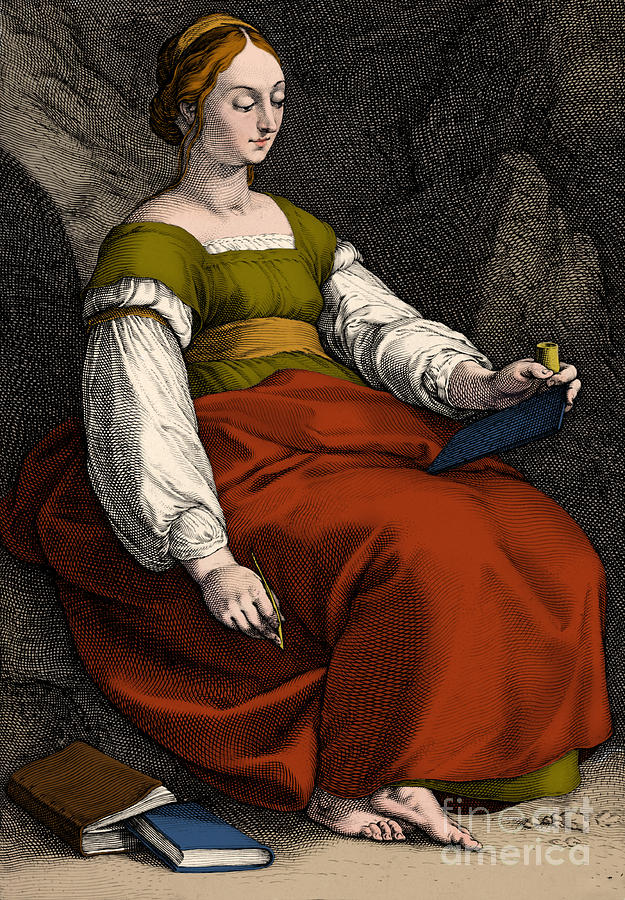
The point of historical research is to produce new knowledge, whether by discovery or reanalysis, and to communicate this knowledge to others. Making something or someone famous does not have to mean that we offer only blind praise. Clio reminds us to be responsible scholars. However, when we teach critical methodologies, source criticism, and public engagement, we give our students the ability to evaluate claims about history on their own terms. There is no reason to hide the fact that historians, like other experts, can suppress inconvenient evidence, under- or overstate significance, and coat incoherent arguments in academic jargon.

After physical needs are met, a whole universe of opportunities for greater fulfillment opens up, and curiosity is a historian’s virtue. Someone who has sufficient resources and yet spends time and energy to accumulate more might well deserve the label “evil oaf” or “nothing but belly.” Laozi, composing only slightly later than Hesiod, agrees: “There is no greater calamity than not knowing what is enough” ( Daodejing 46, translation from Philip J. Humans can indeed be short-sighted and greedy. Fawning on celebrities is usually bad history.īut Clio is still a good Muse for historians.
#Muse of history full#
Lastly, Hesiod says that his new divine voice aims to celebrate, and Clio is particularly implicated here: her name means “Make Famous.” Historians today insist on a critical approach to their subjects, and avoid simple narratives full of glorious deeds.

It also explains why the annual gala of the global advertising industry is the Clio Awards. This double-edged sword resonates grimly today, when trust in experts is extremely low, and lower still if they’re saying something you don’t want to hear. Do we want to align ourselves with demigods who think so little of humanity? Isn’t inspiration supposed to be positive and affirming?įor another, when the Muses mention their powers, they lead not with an ability to tell the truth, but with an ability to seem to tell the truth. For one thing, they begin with verbal abuse, mocking Hesiod and other mortals as incompetent and greedy. In some ways, it is not a promising debut for the Muses. ( Theogony 22-32, translation adapted from Richard S. They picked and gave me a staff, a branch of strong laurel,ĭivine, to make famous what will be and what was. This is what the prompt-voiced daughters of great Zeus said
#Muse of history how to#
We know how to say many lies as if they were true,Īnd when we want, we know how to speak the truth.” "Rustic shepherds, evil oafs, nothing but bellies, The Olympian Muses, daughters of aegis-shaking Zeus: This is the first thing the goddesses told me, Hesiod, writing at the end of the 8 th century BCE, describes his encounter with this group as a sort of initiation:Īs he watched his sheep near holy Mt. This connection with Apollo runs even deeper the Oracle of Delphi, the high priestess of the Temple of Apollo, lived on Mount Parnassus.Clio has come to be identified as the Muse of History: in Greek mythology, she is one of the nine daughters born to Zeus and Mnemosyne (“Memory” personified). Apollo gave him a golden lyre and taught him to play, leading to Orpheus's later mythical exploits. In most accounts, he is the son of Calliope and Apollo, often considered the leader of the Muses. Orpheus, the great poet and lyrist, was raised on Mount Parnassus. The mountain, unsurprisingly, comes up often in Greek mythology. Polyhymnia was the muse of sacred poetry. The Muses that live on their sacred mountain are always the same nine, however:Įrato was the muse of lyric poetry and love poetry. But the honor is usually given to Parnassus.

In Hesiod's account, the Muses lived on another mountain, Mount Helicon. The main Greek gods lived on Mount Olympus, but the Muses were said to live on Mount Parnassus, another large mountain in Greece.

Many poets also wrote hymns and odes dedicated to the muses, like Hesiod's Theogony. Homer's Iliad begins with such an invocation ("Sing, Goddess, the rage of Peleus's son Achilles." in Lattimore's translation) as does the Odyssey. In Greek poetry, it was customary to invoke the muses at the start of an epic poem. Memory was important for the Muses because in ancient times, when writing was uncommon, poets had to carry their work in their memories. In the most popular account, they were the daughters of Zeus, lord of all gods, and Mnemosyne, the goddess of memory. The Nine Muses were Ancient Greek goddesses (or nymphs) who ruled over the arts and sciences and offered inspiration in those subjects. Infoplease Staff The Goddesses of Inspiration


 0 kommentar(er)
0 kommentar(er)
